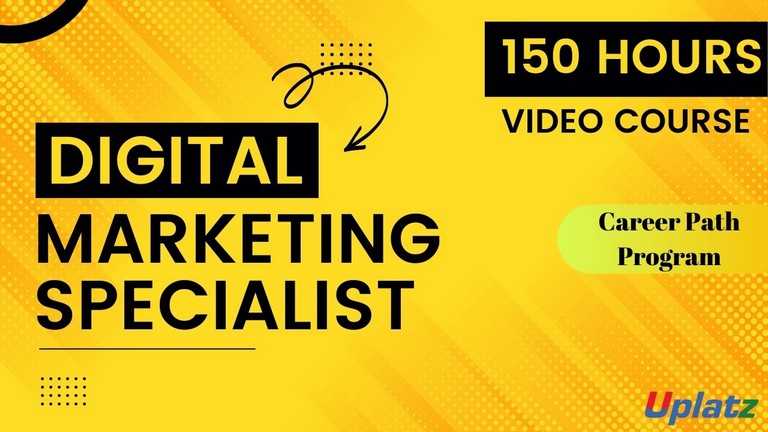AI Product Owner Career Path
Master AI Product Strategy, Development, and Lifecycle Management in Cross-Functional Environments Price Match Guarantee
Full Lifetime Access
Access on any Device
Technical Support
Secure Checkout
Course Completion Certificate
Price Match Guarantee
Full Lifetime Access
Access on any Device
Technical Support
Secure Checkout
Course Completion Certificate
 92% Started a new career
BUY THIS COURSE (
92% Started a new career
BUY THIS COURSE (USD 45 USD 139 )-
 87% Got a pay increase and promotion
87% Got a pay increase and promotion
Students also bought -
-

- Career Path - AI/ML Research Scientist
- 200 Hours
- USD 45
- 368 Learners
-

- Career Path - Digital Marketing Specialist
- 150 Hours
- USD 45
- 1680 Learners
-

- Career Path - Data Science Manager
- 400 Hours
- USD 45
- 966 Learners

AI Product Owner Career Path – Self-Paced Online Course
Step into one of the most in-demand roles at the intersection of technology and business with this self-paced course on becoming an AI Product Owner. Designed to equip aspiring product leaders with a blend of technical understanding and strategic product thinking, this course offers comprehensive training through high-quality pre-recorded video lectures and real-world case studies.
This course provides a solid foundation in AI technologies, product ownership principles, cross-functional leadership, and tools like JIRA, Confluence, SQL, and data analysis basics in Python/R. By understanding how to manage AI products through their lifecycle, you’ll be prepared to work effectively with engineers, data scientists, and business stakeholders to bring AI innovations to market.
Whether you're from a tech, business, or data background, this course prepares you to take ownership of AI-driven solutions with the confidence to lead and deliver impact.
Oops! No Video Subscriptions
By the end of this course, learners will be able to:
- Understand the role and responsibilities of an AI Product Owner in modern enterprises.
- Learn to define, validate, and manage AI product requirements and roadmaps.
- Gain foundational knowledge of AI and machine learning concepts relevant to product strategy.
- Coordinate with cross-functional teams including data scientists, engineers, and business stakeholders.
- Explore tools like JIRA, Confluence, SQL, and basics of Python/R for managing AI products.
- Learn to manage the product lifecycle in AI environments including model training, deployment, and monitoring.
- Understand ethical AI practices, regulations, and risk mitigation strategies.
- Prepare for interviews and certifications relevant to AI product management roles.
Syllabus:
- Introduction to AI Product Ownership
- Role of AI Product Owner
- Importance in AI-driven organizations
- Foundations of Artificial Intelligence
- Key AI and ML concepts
- AI lifecycle and use cases
- AI Product Strategy & Roadmap Planning
- Defining vision and goals
- Market research and user needs
- Creating AI product roadmaps
- Working with AI Teams
- Collaborating with data scientists and ML engineers
- Aligning technical feasibility with business value
- Tools for AI Product Owners
- Using JIRA, Confluence for product planning
- Intro to SQL, Python/R for data insights
- AI Ethics, Compliance & Risk Management
- Fairness, transparency, explainability
- Navigating AI regulations and governance
- Metrics & Performance Tracking for AI Products
- KPIs for AI products
- Monitoring and iteration strategies
- Real-World Use Cases & Case Studies
- AI in healthcare, fintech, retail, and more
- Product ownership success stories
- Career Growth and Certification Preparation
- Career paths in AI product management
- Resume building and interview preparation
Upon successful completion of the course, learners will receive a Course Completion Certificate recognizing their knowledge in AI product strategy and development.
This certification demonstrates your expertise in bridging AI technology and business value and is a strong credential for product management and AI leadership roles. It adds weight to your resume and supports your career growth, especially when transitioning into AI product roles or seeking advancement within a current organization.
Additionally, the course lays the groundwork for preparing for industry-recognized certifications like Certified Scrum Product Owner (CSPO), Product Manager AI Certification, or other related professional programs in AI product leadership.
The AI Product Owner role is among the fastest-growing roles in tech, offering a unique combination of AI domain knowledge and product management expertise. As AI adoption accelerates, organizations are looking for professionals who can lead the development of AI-powered solutions from concept to deployment.
After completing this course, you can pursue roles such as:
- AI Product Owner
- Technical Product Manager – AI/ML
- Product Manager – Data & AI
- AI Strategy Consultant
- AI Innovation Lead
Industries such as finance, healthcare, e-commerce, automotive, and enterprise tech are actively hiring AI Product Owners to drive innovation and product excellence. There are also significant opportunities in startups, consulting firms, and AI R&D labs.
With experience, professionals can advance to positions like:
- Head of AI Products
- Chief Product Officer (CPO)
- Director of AI Strategy
- VP of Product Management
This course opens a pathway to becoming a strategic leader in the AI ecosystem.
1. What is the role of an AI Product Owner?
An AI Product Owner defines the vision for AI products, manages backlogs, aligns stakeholders, and ensures delivery of valuable AI-driven features.
2. How do you differentiate between traditional and AI product development?
AI product development involves experimentation, data dependency, model training, and performance monitoring, unlike traditional deterministic software.
3. What are some key metrics to track for an AI product?
Metrics may include model accuracy, precision/recall, user engagement, business KPIs, and model drift over time.
4. How do you manage stakeholders in AI projects?
By aligning on business value, managing expectations, translating technical insights into business language, and maintaining transparency through the lifecycle.
5. What tools do AI Product Owners commonly use?
JIRA, Confluence for planning; SQL, Python/R for data access; and collaboration tools like Slack, Miro, and product analytics platforms.
6. How do you prioritize features in an AI product backlog?
Using frameworks like RICE or MoSCoW, along with business impact, feasibility, data readiness, and ethical considerations.
7. What is the role of ethics in AI product development?
Ensuring fairness, avoiding bias, complying with regulations, and protecting user data are essential ethical responsibilities.
8. What challenges arise in deploying AI models to production?
Challenges include data drift, model explainability, integration issues, and monitoring for performance degradation.
9. How do you collaborate with data scientists as a product owner?
By defining business problems clearly, ensuring data availability, and iteratively reviewing model outputs and performance.
10. What are some real-world examples of AI product success?
AI-based fraud detection in finance, chatbots in customer service, predictive maintenance in manufacturing, and personalized recommendations in e-commerce.
1. Who is this course for?
Aspiring or current product managers, AI professionals, business analysts, or anyone interested in managing AI products.
2. Do I need a technical background to enroll?
A basic understanding of technology is helpful, but the course is designed to teach non-technical and technical learners alike.
3. Will I learn about AI tools and techniques?
Yes, the course introduces core AI concepts, data analysis tools, and real-world product management practices.
4. Is the course self-paced?
Yes, you can learn at your own pace with lifetime access to video lectures and resources.
5. Will I get a certificate after completing the course?
Yes, you'll receive a Course Completion Certificate that can enhance your resume and LinkedIn profile.
6. Does the course help with job preparation?
Yes, it includes interview questions, resume tips, and career guidance tailored to AI product roles.
7. Are there hands-on elements in this course?
Yes, you'll engage with use cases, product design exercises, and planning tools relevant to AI product ownership.
8. Can I use this course for career transition into AI?
Absolutely. It’s tailored for professionals from product, business, or tech backgrounds looking to enter the AI field.
9. Will I get support during the course?
Yes, learners receive access to expert guidance and peer discussion forums.
10. What industries are hiring AI Product Owners?
Tech, finance, healthcare, retail, manufacturing, and consulting firms are actively hiring for this role.









